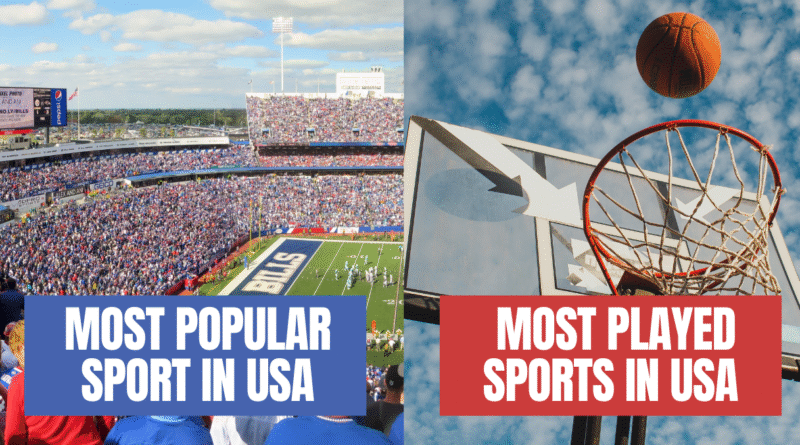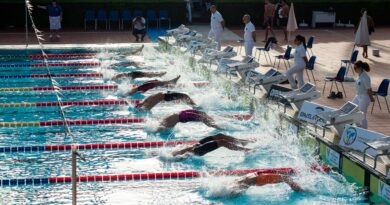Why the United States Is the Most Successful Sports Nation in the World
From Olympic dominance to world-class professional leagues, the United States has left an unmatched mark on global sports.
Its athletes, institutions, and influence continue to shape the world’s perception of athletic excellence.
Whether it’s basketball, swimming, track, or football, the U.S. consistently tops leaderboards.
This success isn’t accidental—it’s built on a powerful mix of culture, investment, and innovation.
In 2025, this sporting legacy matters more than ever as the world grows more competitive.
Let’s explore why the United States is the most successful sports nation in the world today.
A Rich Olympic History
The United States has won more Olympic medals than any other nation in history.
Its athletes consistently dominate both the Summer and Winter Games.
This performance proves America’s long-term commitment to athletic excellence.
Investment in Sports Infrastructure
America invests heavily in world-class training centers, stadiums, and technology.
From grassroots programs to elite facilities, the foundation is strong and widespread.
Such infrastructure fuels both development and consistent high-level performance.
Diverse Talent Pool and Inclusion
The U.S. is home to a multicultural population with access to diverse sports.
This diversity fuels a wide range of strengths—from sprinting to wrestling to gymnastics.
Inclusive systems help identify talent early, regardless of background or income.
Elite Collegiate Athletic Programs
American colleges double as athletic development powerhouses.
NCAA programs train thousands of athletes who often reach pro and Olympic levels.
This college-to-pro pipeline is unique and globally admired.
Strong Professional Sports Leagues
Leagues like the NBA, NFL, MLB, and NHL are global icons.
These leagues attract top talent, set standards, and create massive fan bases.
They also drive innovation in sports science, analytics, and athlete care.
Government and Private Funding Support
Federal grants, military athlete programs, and private sponsorships boost U.S. sports.
Corporate investment ensures athletes have the resources to focus on performance.
This funding system keeps America ahead of the curve globally.
World-Class Coaching and Science
Coaching in the U.S. blends experience with cutting-edge science.
Strength training, nutrition, and mental conditioning are deeply integrated.
Such support maximizes potential and reduces burnout or injury.
Youth Development and School Sports
Sports start early in American schools, from elementary to high school.
These programs nurture discipline, teamwork, and competitive spirit.
Millions of kids participate in sports daily, creating a massive talent base.
Global Influence and Media Reach
American sports are broadcast and followed around the world.
Athletes like Michael Phelps, Serena Williams, and LeBron James are global icons.
This soft power promotes American sports values and training styles internationally.
Culture of Competition and Ambition
American culture celebrates winners and hard work.
From high school championships to pro titles, competition is embedded in the mindset.
This ambition pushes athletes to go beyond limits again and again.
Military and Athletic Crossovers
Programs like the U.S. Army World Class Athlete Program support dual careers.
Service members train for elite competition while serving their country.
This model adds to the pool of disciplined, high-performing athletes.
Innovation in Sports Technology
The U.S. leads in wearable tech, injury recovery, and performance tracking.
Athletes benefit from real-time data and hyper-personalized training plans.
This tech edge improves preparation and minimizes risks.
Support for Women in Sports
Title IX changed the game for female athletes in America.
Women now have equal opportunities, funding, and visibility across sports.
As a result, U.S. women dominate in soccer, gymnastics, and more.
Resilience and Comeback Stories
From political protests to injuries, American athletes often bounce back stronger.
The U.S. supports mental health and psychological strength in sports.
These stories inspire the nation and encourage rising athletes to persevere.
Hosting Global Sporting Events
The U.S. regularly hosts Olympic Games, World Cups, and international tournaments.
Hosting brings in infrastructure, media, and motivation for home athletes.
It also cements America’s role in shaping sports diplomacy.
Global Recruitment and Training
Many top international athletes train in the U.S. or attend American universities.
The system is attractive for its resources and competitive environment.
This global pull adds to the credibility and prestige of U.S. sports programs.
Community and Fan Engagement
American fans are passionate, loyal, and engaged through media and tech.
Strong fan bases create high energy and financial support for athletes.
This connection boosts morale and builds lifelong athletic careers.
Commitment to Ethical Standards
While not perfect, U.S. sports bodies promote fair play and transparency.
Anti-doping programs and ethical training are enforced across all levels.
This commitment helps maintain a clean image on the world stage.
Adapting to New Sports Trends
The U.S. embraces evolving trends like esports, adaptive sports, and wellness culture.
This openness keeps the country relevant and future-ready in the global arena.
Innovation and flexibility drive continued athletic success.
Conclusion
In 2025, the United States remains the most successful sports nation in the world because of its unmatched mix of culture, investment, and innovation.
Its system—from school to Olympic podium—is designed for excellence and resilience.
As global competition rises, America’s ability to evolve ensures it stays on top.
Its legacy isn’t just about medals—it’s about inspiring the world through sport.




